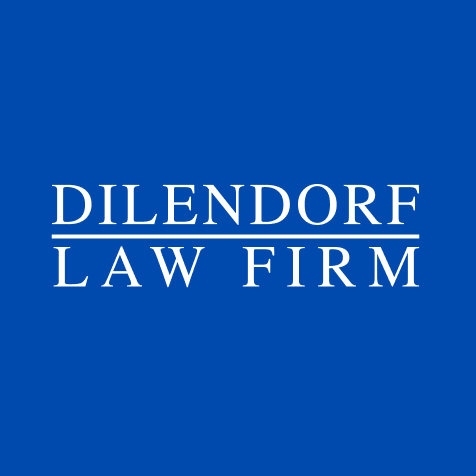DSOs Definition and Scope
DSO is an offering and sale of securities that are issued and exist on a blockchain, which makes them digital securities. Accordingly, digital securities are issued, restricted, transferred, and settled differently from traditional securities. Digital securities issued in a DSO are still securities and meet the circumstantial US test defining the securities (the Howey test).
DSOs are also commonly referred to as security token offerings (STOs) or token generating events, during which “security tokens” are issued to investors. DSOs may also be confused with ICOs but DSOs do not involve so-called “utility tokens,” as during DSOs issuers offer digital securities or security tokens, which are not designed to have functional, consumptive or utility value on the issuer’s platform.
Accordingly, the scope of DSOs is broad but limited to the scope of traditional equity and debt securities, including offerings of digital securities (digital tokens) representing:
- Tokenized common share capital in a corporation;
- Tokenized preferred share capital in a corporation;
- Tokenized interest in a limited liability company, partnership or other entity;
- Tokenized profit-sharing rights in a company;
- Tokenized company’s debt (that may be converted to traditional or tokenized equity);
- Tokenized interest in venture capital, real estate or other funds; and
- Tokenized securities representing fractions of real estate, oil & gas, gold, diamonds, art pieces and other real-world assets, etc.
Benefitting from DSOs
DSOs provide an efficient tool for raising capital by:
- Instant access to capital on a global scale;
- Efficient capital table management via smart contracts with no middlemen;
- Fractionalization of ownership and access to assets with traditionally high barriers to entry;
- Attractiveness to both traditional and blockchain investors;
- Transparency and immutability; and
- Overall, DSO features may allow for a substantial increase in the digital securities’ (or underlying asset’s) liquidity.
At the same time, going through a DSO, blockchain startup projects avoid the problem associated with issuing “utility” tokens at the fundraising stage: this may mislead the investors (as “utility” tokens are treated as securities at the fundraising stage) and create an uncertainty about the non-security status of such “utility” tokens in the future (whether and when “utility” tokens become non-securities is an extremely fact-specific and complex analysis).
Carefully Planning for DSOs
To utilize the outlined DSO benefits and smoothly launch a project, each DSO must be crafted diligently to account for numerous issues in advance, including:
- Offshore/US/combined corporate and ownership structure;
- Marketing arrangements;
- Considering and qualifying for a DSO platform;
- Meeting AML/KYC requirements;
- Planning for team compensation;
- Potential limitations on the number of investors and secondary trading; and
- Tax liability.
Lawyers at Dilendorf Law Firm advise clients on the DSO-related issues in advance to come up with an elaborate DSO plan essential for a successful and well-timed project.
US Securities Regulations of DSOs
Issuers of digital securities offered at DSOs must register their digital tokens with the SEC (and comply with the ongoing reporting obligations) or claim one of the exemptions from the registration, just like all traditional securities. Most of the compliant DSO projects take advantage of one or several of the available exemptions from SEC registration saving a significant amount of time, as well as hundreds of thousands of dollars.
Exemptions from registration are contained in the Securities Act of 1933 (the “Act”) and most of the DSO projects utilize the exceptions provided in the Act’s Regulation D, Regulation S, as well as Regulation CF. Some projects applied for Regulation A+ exemption also known as mini-IPO for certain more extensive reporting requirements.
Without having to undergo a costly and lengthy registration process, DSO projects still have to meet strict qualifications for each of the exemptions from registration. Additional precautions should be taken when DSOs are conducted under different exceptions concurrently.
Our attorneys navigate US-based and foreign clients through all of the US regulatory requirements for a compliant DSO.
Foreign securities regulations
Although the U.S. is a major market for security tokens, it is not the only one. In fact, many past token offerings prohibited the participation of U.S. residents in an effort to avoid U.S. securities regulations. However, other countries also regulate offerings of securities.
For example, because the interest rates in Japan are currently ultra-low or negative, security tokens backed by income-producing assets in the U.S. could be very appealing to Japanese investors. However, as in the United States, securities must be registered before they can be sold in Japan, and the process of registration is lengthy and expensive.
Token issuers should consult local counsel in each country where a token will be offered to ensure that the sale complies with that country’s securities laws.
Tax consequences
Token issuers must consult professional tax advisers to develop a sound tax-planning strategy in the weeks and months before an STO. Any such strategy must account for (among other issues):
- The type of tokenized interest and the rights associated with the token;
- How income generated in the token sale will be treated for tax purposes;
- What reporting and withholding requirements may apply.
For example, in a real estate tokenization deal, issuers of tokenized U.S. real estate interests must be mindful of FIRPTA – a federal law that generally requires withholding a part of the sales proceeds from U.S. real estate owned by a foreign person and remitting the withheld amount to the IRS.
The IRS issued IRS Notice 2014-21, IRB 2014-16, as guidance for individuals and businesses on the tax treatment of transactions using virtual currencies.
The IRS also published Frequently Asked Questions on Virtual Currency Transactions for individuals who hold cryptocurrency as a capital asset and are not engaged in the trade or business of selling cryptocurrency.
Launching Your DSO
Our legal services cover the whole DSO process to make it work for a particular project, including:
- Determining corporate, digital security and sale structure;
- Implementing the effective corporate governance structure;
- Guiding through AML/KYC checks and investor accreditation;
- Advising on a project’s qualification for a suitable exemption from SEC registration throughout the DSO;
- Developing compliant marketing strategy, team compensation plan, buy-out plan;
- Advising on operational issues related to DSO platforms;
- Preparing private placement memorandum, purchase agreement, investor questionnaires, and other DSO documents;
- Filing required forms with the SEC; and
- Advising on post-DSO issues, such as secondary market trading and broker-dealer issues.
Contact Us to Learn More About Our Security Token Offering Services
Send us an email or call 212.457.9797 to schedule a consultation at our Manhattan office.
Resources:
Summary
Service Type
Digital Security Offerings | DSOs
Provider Name
Dilendorf Law Firm,
60 Broad Street, 24th Floor,New York,New York-10004,
Telephone No.212.457.9797
Area
Alabama Alaska Arizona Arkansas California Colorado Connecticut Delaware Florida Georgia Hawaii Idaho Illinois Indiana Iowa Kansas Kentucky Louisiana Maine Maryland Massachusetts Michigan Minnesota Mississippi Missouri Montana Nebraska Nevada New Hampshire New Jersey New Mexico New York North Carolina North Dakota Ohio Oklahoma Oregon Pennsylvania Rhode Island South Carolina South Dakota Tennessee Texas Utah Vermont Virginia Washington West Virginia Wisconsin Wyoming
Description
Digital Security Offerings, limited partnership interests, diamonds, arts, luxury cars and boats










































